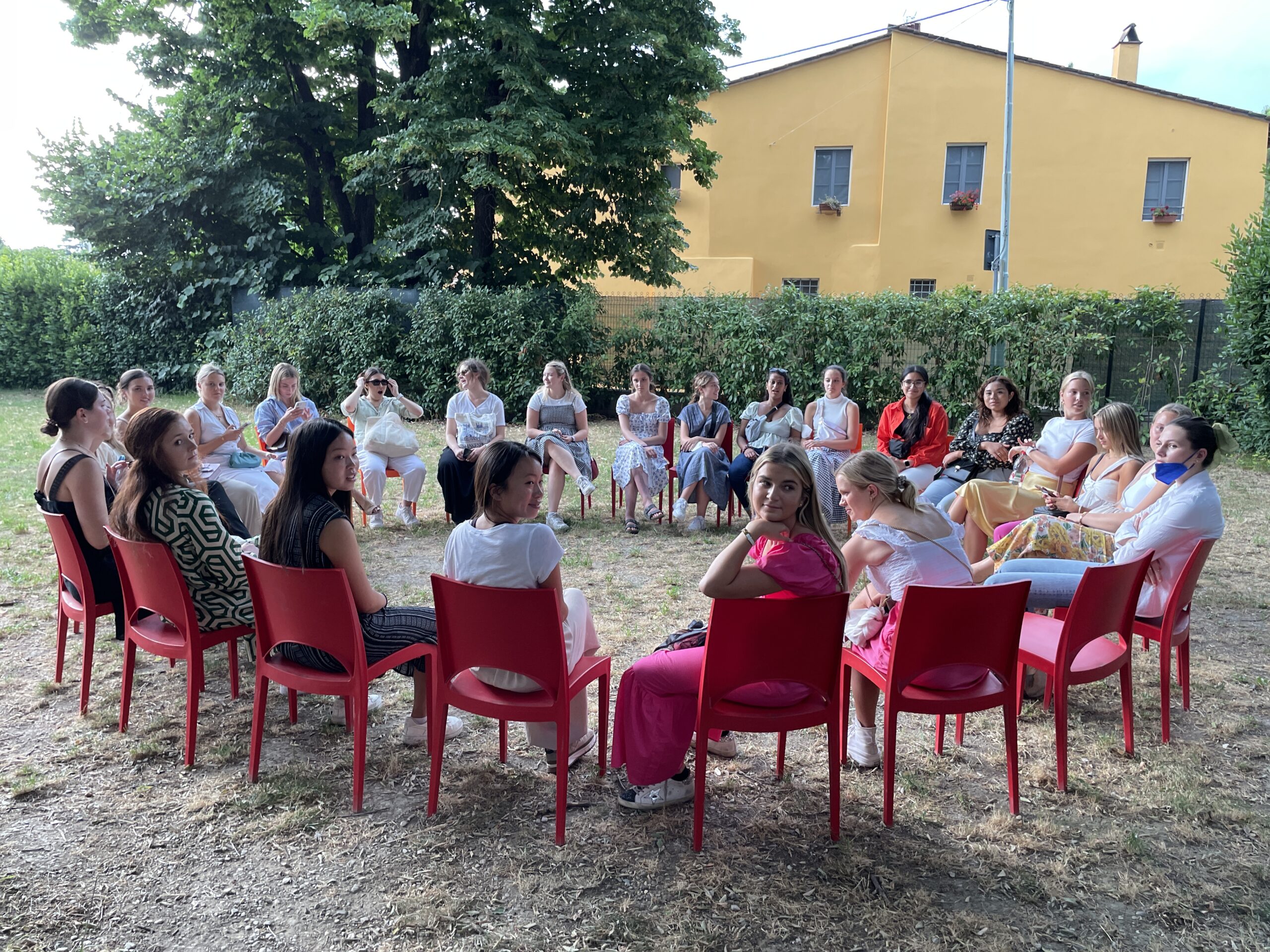Health and Social Services in Tuscany

During a three-week summer program in Florence, a group of health sciences students from Texas Christian University explored the functioning of social services facilities in Italy through a visit to the Opera di Santa Rita Foundation. Their visit was part of the program Healthcare Practices in Italy, which challenges students to explore Italy’s healthcare system and study the different levels of healthcare delivery in a foreign country.
Founded in 1934 in the Tuscan town of Prato, Opera di Santa Rita is a private foundation that helps individuals with autism spectrum disorder and minors with psychiatric needs or with difficult family and social backgrounds. Its various centers currently host about 200 individuals who are in need of assistance. The foundation works closely with public healthcare and social services facilities and provides important support for the community.
The students first arrived at the foundation’s headquarters, a former Capuchin monastery donated to the Opera by the local diocese. Dr. Nicoletta Ulivi, general director of the institution, introduced the foundation’s work and then Dr. Elena Basile, coordinator, led the students to the two residences of Villa Nesti and Campostino.
Villa Nesti is a group home for individuals with severe autism, who can no longer live independently or with their families. After describing the group home’s structure and the background of some of the residents, Dr. Basile led a tour of the residence, from the rooms to the common spaces, such as the art room and the flower garden. After the tour, residents treated students to a merenda (mid-afternoon snack) that they had prepared, and students had a chance to ask about life at Villa Nesti. Some volunteered to help residents with garden work, one of the activities assigned to them.
The group also visited Campostino, a group residence for adolescents with psychiatric diagnoses. Students talked to some of the on-site operators and doctors on rotation, who shared their professional and personal experience working in a context that is both challenging and rewarding. Throughout their visit, students ran into several of the residents, who were curious about the circumstances of the visit and happy to talk to their foreign guests. It was only the need to return to Florence that cut short many conversations about life as a young adult in Texas and in Tuscany.
Through this visit, students explored a lesser-known aspect of the Italian welfare system, institutions supporting families and individuals with autism or mental health needs. The experience at Opera Santa Rita left a profound impression on many, and it will inform their future careers as health professionals.

Accent has extensive experience designing experiential learning activities that complement and build on the learning objectives of faculty-directed courses. Please reach out to Accent’s Program Development team at development@accentglobal.com if you are interested in discussing these ideas for your current or future study abroad program.